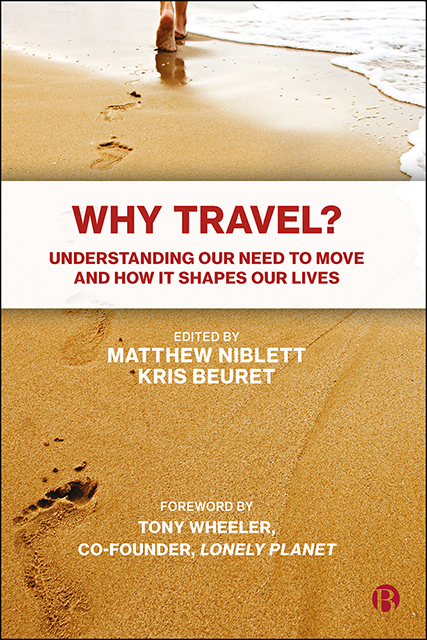Book contents
4 - Philosophy and Travel: The Meaning of Movement
Published online by Cambridge University Press: 21 April 2023
Summary
Introduction
‘What is life but a form of motion and a journey through a foreign world?’ That was the rhetorical question posed by the Spanish-American thinker George Santayana – an inveterate traveller and migrant himself – in his famous essay on ‘The Philosophy of Travel’. Santayana believed that movement was a fundamental characteristic of human existence, closely related to thought and desire and, as such, was a worthy subject of philosophical investigation (1968: 5–17). Although it rarely attracts much attention in the transport world, many of the greatest thinkers have shared Santayana's view and enthusiastically mused on the relevance of travel to our lives. This is less surprising than it might at first appear. Philosophy, in the sense of trying to obtain a deeper understanding of our existence, values and motivations, has much to offer an investigation of why we travel. Questions about travel are often philosophical in nature, and help us to comprehend who we are. What, for instance, are we hoping to achieve from our journeys? Will travel lead to the good life, or is it a fool's errand? Can we improve ourselves through travel to new places? And, topically, is it ethical to travel if it damages the environment? Through such questions philosophers can help us understand better both the nature of travel as well as our behaviour.
In this chapter, we will take a tour through some of the insights that philosophers over the centuries have brought to our appreciation of why humans travel. A short essay can, of course, only skirt the foothills of such a rich body of writing and reflection, but it will try to offer a brief introduction to some of the giants who have explored the philosophy of travel. We will begin by examining travel in the ancient world and the insights classical philosophers in Europe and Asia have brought to these questions. Moving forward, the chapter will then track some of the key motivations behind travel identified by more modern philosophers, before considering perspectives that have been sceptical of travel and encouraged deeper thought about our journeys before we leave home. Finally, we will investigate some of the more recent controversies about why travel, and the moral questions and dilemmas philosophers have raised.
The ancients on travel
The pathway to insight
- Type
- Chapter
- Information
- Why Travel?Understanding Our Need to Move and How It Shapes Our Lives, pp. 55 - 76Publisher: Bristol University PressPrint publication year: 2021

